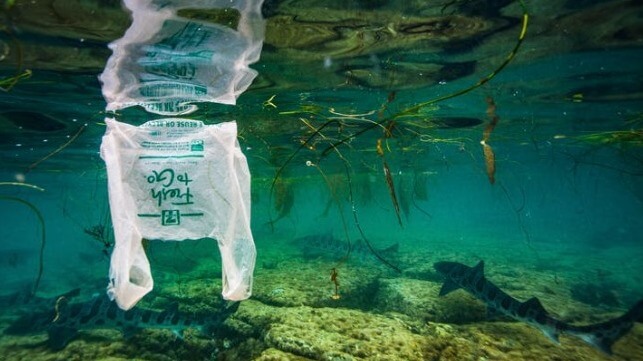UN Opens Talks on Zero Draft Treaty on Plastic Pollution

The push to end plastic pollution is gaining momentum as negotiators gather to discuss the initial draft of a treaty to end the growing menace, which is particularly pernicious in the marine environment.
Negotiators have gathered in Nairobi, Kenya, to discuss the zero draft of a treaty, hoping to move towards consensus on a legally binding global instrument to end plastic pollution.
From November 13 to 19, the UN’s Intergovernmental Negotiating Committee (INC) will hold its third session with the main focus of talks on the zero draft, a 31-page document developed in September that marks the first tangible step towards the goal of an international plastics treaty.
Jyoti Mathur-Filipp, the Executive Secretary of the INC Secretariat, said that the zero draft was drafted based on a comprehensive approach that addresses the full life cycle of plastics. The talks will form the basis of developing the next draft, which will be discussed in April next year in Canada.
“The aim is to complete negotiations by the end of 2024 on an international legally binding global instrument on plastic pollution, including in the marine environment,” said Mathur-Filipp.
The menace of plastic pollution is worsening, according to the UN. Over 430 million tonnes of plastic is produced worldwide annually, two-thirds of which are short-lived products that soon become waste. Much of that ends up polluting land, sea and air while increasingly working its way into the human food chain. Every day, the equivalent of over 2,000 garbage trucks full of plastic is dumped into the world’s oceans, rivers and lakes.
The social, economic and environmental costs of plastic pollution range between $300 million to $600 billion per year. Still, plastic production is expected to double over the next 20 years if no action is taken. According to the UN, the world has the potential to save a staggering $4.5 trillion by 2040 by redesigning the production, use, recovery and disposal of plastics and products.
The negotiations in Nairobi come at a time when a new report by WWF shows that low-income nations are suffering more from plastic pollution despite producing and consuming less plastic.
The report contends that the true cost of plastic on the environment, health and economies is as much as 10 times higher for low-income countries, even though they consume almost three times less plastic per-capita, than in high-income ones. The total lifetime cost for a one-kilogram block of plastic waste in a high-income country for example, is $19 compared to eight times that for middle and lower-income countries at an average of $150 and 10 times that for lower-income countries at $200.
“The report signals the urgency of an immediate overhaul of the current plastic system,” said Alice Ruhweza, WWF International’s Senior Director of Policy, Influence and Engagement. She added that a global plastic pollution treaty offers the only chance to change the current reality by including binding and equitable global rules on production and consumption.
Top industrialized economies, including the U.S, Russia and China, together with oil producing countries and the fossil fuel industry, have emerged as the main obstacles for the treaty, which would impact the business of plastics manufacturing. The UN asserts that the world needs to reduce the amount of plastics produced and eliminate single-use and short-lived plastic products, which is critical in protecting the marine environment.
No comments:
Post a Comment